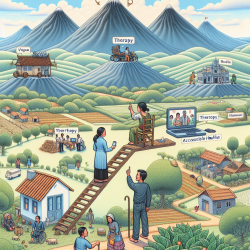Child and adolescent mental health (CAMH) is a critical yet often overlooked aspect of healthcare, particularly in low-income countries like Sudan. A recent desktop situational analysis of CAMH services in Khartoum State, Sudan, provides valuable insights that can help practitioners improve their skills and encourage further research. This blog aims to distill key findings from the study to inform and inspire practitioners.
Understanding the Current State of CAMH Services in Khartoum
The situational analysis, conducted using the World Health Organization Assessment Instrument for Mental Health Systems (WHO-AIMS) version 2.2, revealed several strengths and gaps in the existing CAMH services and systems in Khartoum State.
Key Findings
- Policy and Legislative Framework: There are no CAMH-specific policies, separate budgets, or supervising bodies for CAMH services in Khartoum. The existing Sudan National Mental Health Policy, last revised in 2009, mentions CAMH but lacks specificity and dedicated resources.
- Service Delivery: CAMH services are available in three tertiary mental health hospitals, but these services are integrated with adult mental health services. Essential medicines are available, but access to psychotropic drugs for children and adolescents is limited.
- Human Resources: The workforce for CAMH services is small and variable. There are only two child psychiatrists in Khartoum, and the majority of mental health professionals are concentrated in urban areas.
- Public Education and Awareness: There are no formal public health awareness campaigns specific to CAMH, and intersectoral collaboration is minimal.
- Health Information Systems: While a health information system exists, it does not include CAMH-specific data items, making it difficult to monitor and evaluate CAMH services effectively.
Actionable Insights for Practitioners
Based on the findings, here are some actionable steps that practitioners can take to improve CAMH services in Khartoum:
- Advocate for Policy Changes: Practitioners can play a crucial role in advocating for the development of CAMH-specific policies and dedicated budgets. Collaborating with policymakers and stakeholders can help bring about necessary changes.
- Enhance Training Programs: Regular training and refresher courses for primary healthcare providers on CAMH can improve early identification and management of mental health issues in children and adolescents.
- Improve Service Delivery: Developing hospital-based specialist outpatient and inpatient CAMH services that are separate from adult services can provide more targeted care.
- Increase Public Awareness: Initiating public health campaigns to raise awareness about CAMH issues can reduce stigma and encourage families to seek help for their children.
- Strengthen Health Information Systems: Including CAMH-specific data items in health information systems can help monitor and evaluate the effectiveness of CAMH services, guiding future improvements.
Encouraging Further Research
There is a clear need for more comprehensive data collection and research on CAMH in Sudan. Practitioners can contribute by conducting local studies, publishing findings, and collaborating with international researchers to build a robust knowledge base.
To read the original research paper, please follow this link: Child and adolescent mental health services in Khartoum State, Sudan: a desktop situational analysis.










